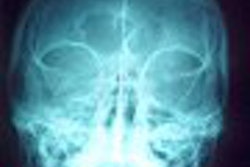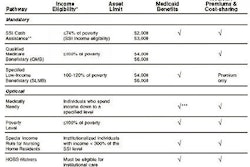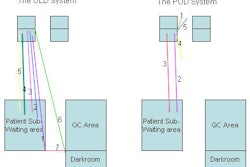Dear AuntMinnie Member,
Are radiology departments a health hazard for patients? That much is implied by a report issued yesterday that claims to have found higher rates of harmful medication errors in radiology compared with other areas of medicine.
In a survey that compiled five years of data from community hospitals, medication standards body United States Pharmacopeia found that pharmaceutical-related medical errors in radiology were seven times as likely to cause harm to a patient as overall medication errors in the hospital. Staff writer Jonathan S. Batchelor reports on the study in our Imaging Center Digital Community.
Some 12% of reported medication errors in radiology were categorized as harmful, the USP report said. Errors ranged from allergic reactions to contrast media to problems with nonradiologic therapeutic drugs -- many of which were administered before patients ever got to radiology. The group's data didn't cover nonmedication errors such as radiation overdoses.
Radiology advocates were quick to jump to the specialty's defense, pointing out that the overall rate of errors in radiology was quite low. And they criticized some sections of the report as vague -- for example when it tagged radiology with medication mistakes that occurred in cardiac cath labs, even though cardiology departments for the most part now control this area of imaging.
In an ideal world, the USP report could have a silver lining by highlighting the need for better communications between radiology and other hospital departments, and for a renewed focus on imaging procedures conducted by trained, certified physicians -- a boon to radiology's efforts to fight physician self-referral.
But in today's climate of sound bites and short attention spans, a more likely scenario has radiology suffering yet another black eye akin to the "radiology causes cancer" stories of 2005. Ironically, nonradiologist physicians could even use the report to assert that imaging technology would be safer in their hands rather than in radiology's.
The imaging community should address the issue head-on, first by delving deeper into medication errors to determine how serious the problem really is. Peer-reviewed studies conducted by those who truly understand radiology would be a help here. And on a practical level, all imaging facilities should review their procedures for administering pharmaceuticals to reduce the number of medication errors that occur.
Get the rest of the story by clicking here, or visit our Imaging Center Digital Community at centers.auntminnie.com



















